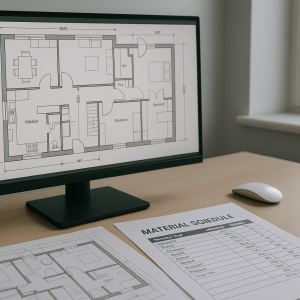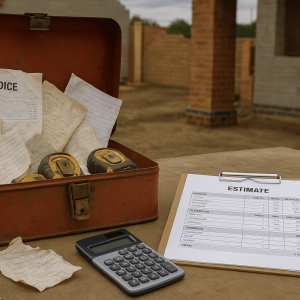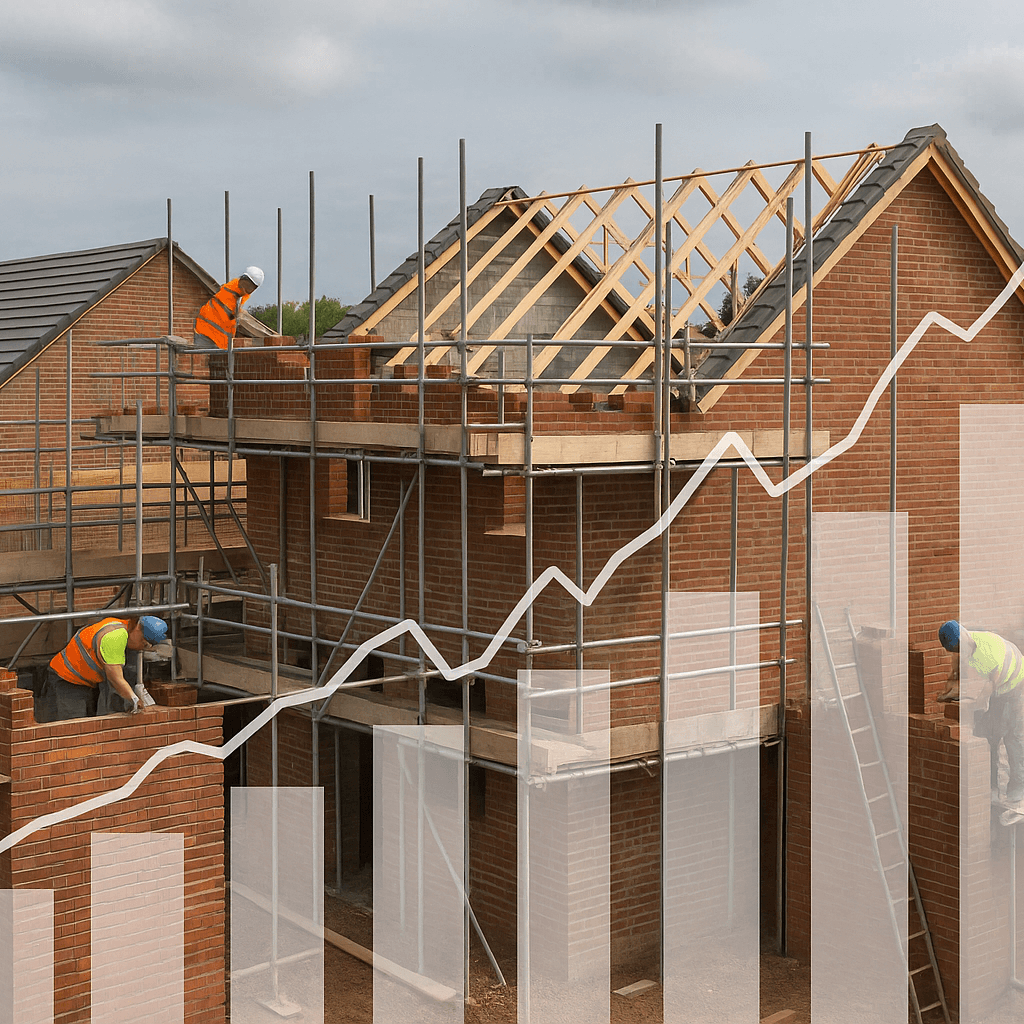In the world of construction, accurate cost estimation is crucial for successful project planning and budgeting. Construction estimators play a vital role in providing builders with reliable cost estimates that help them make informed decisions. In the UK construction industry, the demand for professional estimating services is growing steadily, as builders recognize the numerous benefits they bring to their projects.
Understanding the Importance of a Cost Estimate
Before delving into the specifics of obtaining a cost estimate, it’s essential to understand why it matters in the first place. A cost estimate is an approximation of the expenses involved in a construction project. It helps builders understand the financial implications and make informed decisions based on accurate projections.
When it comes to construction projects, cost is a critical factor that can make or break the success of a venture. Without a clear understanding of the expenses involved, builders may find themselves facing unexpected financial challenges that can lead to delays, compromises in quality, or even project failure. This is where a comprehensive cost estimate becomes invaluable.
A cost estimate acts as a roadmap for builders, guiding them through the intricate web of financial considerations. It takes into account various factors such as materials, labor, equipment, permits, and other direct and indirect costs. By providing a detailed breakdown of these expenses, a cost estimate allows builders to gain a holistic view of the project’s financial requirements.
The Role of Cost Estimates in Budgeting
One of the primary purposes of a cost estimate is to assist builders in creating a realistic budget. A comprehensive estimate takes into account all the direct and indirect costs involved in the project, providing a clear picture of the financial resources required. With a well-defined budget, builders can allocate funds more effectively, ensuring that the project stays on track.
Creating a budget without a cost estimate is akin to navigating through uncharted waters without a compass. It leaves builders vulnerable to overspending or underfunding, both of which can have severe consequences. A cost estimate acts as a compass, guiding builders towards financial stability and ensuring that resources are allocated wisely.
Moreover, a budget derived from a reliable cost estimate allows builders to make informed decisions throughout the project. It helps them prioritize expenses, identify potential cost-saving opportunities, and mitigate financial risks. By having a clear understanding of the financial implications, builders can proactively manage their resources and make adjustments as needed.
How Cost Estimates Impact Project Planning
Accurate cost estimates are essential for effective project planning. They help builders determine the feasibility of their projects and make necessary adjustments based on financial constraints. Additionally, cost estimates enable builders to assess the profitability of a project and understand its potential return on investment.
When embarking on a construction project, builders need to evaluate its viability from both a technical and financial standpoint. A cost estimate plays a crucial role in this evaluation process. It helps builders assess whether the project aligns with their financial goals and resources, allowing them to make informed decisions about whether to proceed or explore alternative options.
Furthermore, cost estimates provide builders with insights into the potential profitability of a project. By comparing the estimated costs with the projected revenue, builders can gauge the financial viability of the venture. This information is invaluable in determining whether the project is worth pursuing or if adjustments need to be made to ensure a satisfactory return on investment.
Overall, cost estimates are not just numbers on a piece of paper. They are powerful tools that shape the course of construction projects. By providing builders with a comprehensive understanding of the financial implications, cost estimates empower them to make informed decisions, allocate resources effectively, and ensure the success of their endeavors.
Key Elements of a Comprehensive Cost Estimate
When obtaining a cost estimate, builders must consider various elements to ensure accuracy and reliability. Here are some key factors to pay attention to:
Direct and Indirect Costs
Direct costs are expenses directly associated with the construction project, such as materials, labor, and equipment. These costs are the backbone of any construction project and play a crucial role in determining the overall budget. Builders need to carefully analyze and estimate the quantity and cost of materials required, considering factors such as market prices, availability, and quality. Additionally, estimating labor costs involves considering the number of workers needed, their skill level, and the duration of the project. Equipment costs, including both rental and purchase, must also be taken into account to ensure an accurate estimate.
Indirect costs, on the other hand, are not directly tied to the project but still contribute to the overall expenses. These costs can include permits, insurance, and general overhead. Obtaining the necessary permits and licenses is essential for any construction project to comply with legal requirements and avoid potential penalties. Insurance costs, such as liability insurance, protect builders from unforeseen accidents or damages that may occur during the construction process. General overhead costs, including administrative expenses and office rent, are necessary for the smooth operation of the construction company and should be factored into the estimate.
Fixed and Variable Costs
Fixed costs are expenses that remain constant throughout the project, regardless of its scale. These costs are essential for the day-to-day operation of the construction company and include items such as rent, utilities, and salaries. Renting office space or a construction site, paying utility bills, and compensating employees are all examples of fixed costs that need to be carefully estimated to ensure accurate budgeting.
Variable costs, on the other hand, fluctuate based on the project’s size and scope. These costs are directly related to the materials, labor, and services required for the specific project. Material costs, for instance, can vary depending on market prices, availability, and the quantity needed. Labor costs may increase or decrease based on the number of workers required and their skill level. Subcontractor fees, if applicable, are also variable costs that need to be considered. By differentiating between fixed and variable costs, builders can identify areas where savings can be made and manage their resources effectively.
Contingency Costs
Contingency costs are additional funds set aside to account for unforeseen circumstances or potential risks. Construction projects are often subject to unexpected challenges, such as weather delays, design changes, or unforeseen site conditions. Including a contingency in the cost estimate helps builders mitigate potential financial issues that may arise during the project. It acts as a safety net, providing extra resources to address unexpected challenges without disrupting the budget. The amount of contingency to include in the estimate depends on the project’s complexity, the level of uncertainty, and the builder’s risk tolerance.
Estimating contingency costs requires careful analysis of potential risks and their potential impact on the project. Builders need to consider factors such as the project’s location, the construction method, and the experience of the project team. By identifying potential risks and assigning a contingency amount, builders can ensure that they have the necessary resources to address unexpected events and maintain the project’s financial stability.
Steps to Obtain a Reliable Cost Estimate
Now that we understand the importance of a cost estimate and the key elements it comprises, let’s explore the steps involved in obtaining a reliable estimate:
Identifying the Scope of Work
The first step in obtaining a cost estimate is to clearly define the project’s scope of work. This involves outlining the objectives, deliverables, and specific requirements of the construction project. By clearly defining the scope, builders can ensure that the estimate accurately reflects the project’s needs.
Gathering Necessary Information
Next, builders must gather all the necessary information related to the project. This includes architectural plans, engineering details, material specifications, and any other relevant documentation. Access to accurate and up-to-date information is vital for estimating the costs accurately.
Calculating the Costs
With the scope of work and necessary information in hand, construction estimators can begin the process of cost calculation. This involves breaking down the project into individual tasks, determining the resources required for each task, and assigning appropriate costs. Advanced software tools and industry knowledge contribute to accurate calculations and reliable estimates.
Common Mistakes in Cost Estimation and How to Avoid Them
While obtaining a cost estimate, it’s important to be aware of common pitfalls that can lead to inaccurate projections. By understanding these mistakes, builders can take proactive measures to avoid them:
Underestimating Costs
A common mistake in cost estimation is underestimating the expenses involved in a project. This can lead to financial strain and delays in completion. To avoid this, it’s crucial to conduct a thorough analysis of all project requirements and consider historical data to identify potential cost overruns.
Overlooking Hidden Costs
Hidden costs can often escape the attention of builders during the estimation process. These costs include permits, taxes, legal fees, and potential site-specific challenges. By conducting diligent research and seeking advice from industry experts, builders can ensure that all hidden costs are accounted for in the estimate.
Ignoring the Impact of Time
Time plays a significant role in cost estimation. Ignoring the impact of time on construction projects can lead to inaccurate estimates. Factors such as project duration, labor productivity, and potential delays should be considered to provide a more realistic projection of the overall costs.
In conclusion, obtaining a reliable cost estimate is crucial for successful project planning and budgeting in the UK construction industry. Construction estimators play a vital role in providing accurate projections, allowing builders to make informed decisions and allocate resources effectively. By understanding the key elements of a comprehensive cost estimate and following the necessary steps, builders can avoid common mistakes and ensure the financial success of their projects.
Ready to take the next step in ensuring the financial success of your construction project? At Cost Estimator, we specialize in providing detailed and accurate cost estimates tailored to the unique requirements of the UK building sector. Our team of expert estimators utilizes the latest tools and methodologies to deliver comprehensive estimates, from material costs to contingency planning. Don’t let uncertainties derail your project. Upload your plans today and receive a bespoke estimate that aligns with your construction goals and budgetary needs.











